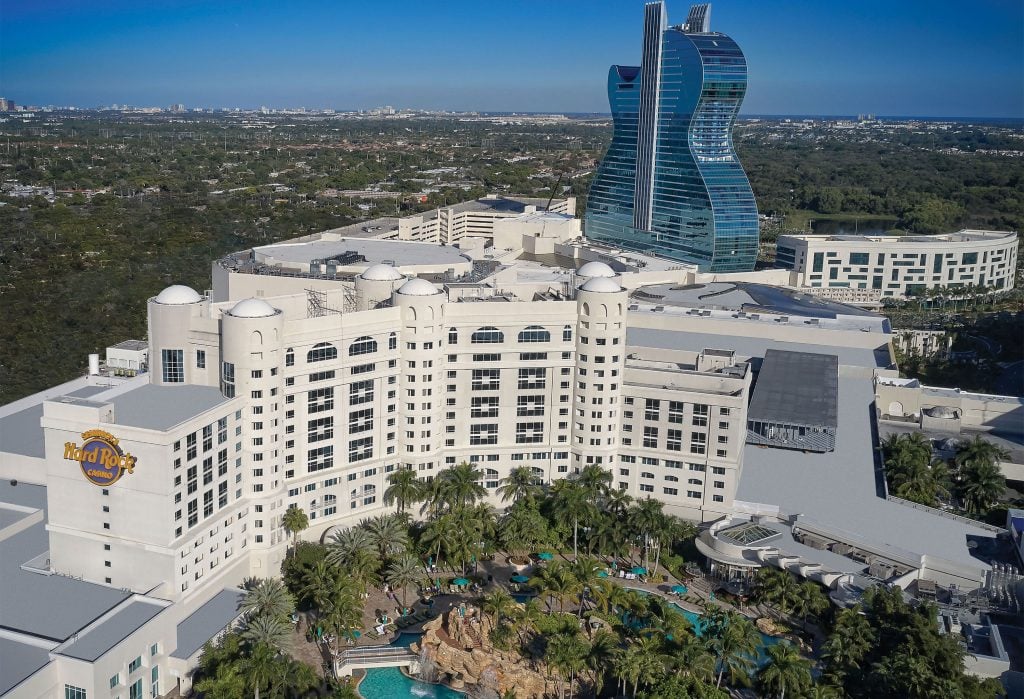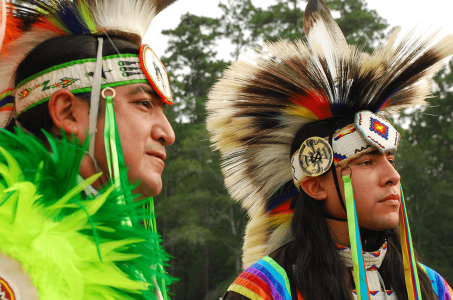Florida Sports Betting Case: Pari-Mutuels Say Seminoles Knew Compact was ‘Dubious’
Posted on: December 1, 2021, 09:00h.
Last updated on: December 1, 2021, 12:40h.
Lawyers for two Florida pari-mutuel operators urged a federal appellate court Tuesday not to reverse a lower court’s decision nullifying a mobile sports betting compact. That’s because they claim the injuries tribal leaders claim were “self-inflicted.”

The issue surrounds a challenge to the amended gaming compact granting the Seminole Tribe of Florida exclusive sports betting statewide.
In a 29-page rebuttal to the tribe’s emergency motion last week, lawyers for Boies Schiller Flexner told the US Circuit Court of Appeals for the District of Columbia that their clients – the Magic City Casino and the Bonita Springs Poker Room – are the ones being harmed. That’s because the tribe’s Nov. 1 launch of the Hard Rock Sportsbook app across the state has already impacted the handle at Magic City, which is located in Miami.
And since the Seminole Tribe is protected by sovereign immunity, Magic City’s owners are “permanently irretrievable,” wrote Hamish Hume, the lead attorney representing the pari-mutuel operators.
Operations Continue
Despite US District Judge Dabney Friedrich throwing out the amended compact between the tribe and Florida officials, tribal leaders have continued to operate the app. They have appealed Friedrich’s order and sought a stay of the order that would allow them to keep the operation going while the courts determine if the compact is legal under the Indian Gaming Regulatory Act.
Friedrich threw out the entire compact because she said the statewide sports betting provisions take place off tribal lands, and that goes against the 33-year-old federal law.
Magic City and Bonita Springs filed the lawsuit in August in the US District Court for the District of Columbia against Interior Secretary Deb Haaland and the US Department of the Interior. The plaintiffs claimed that the federal government should not have approved the compact, because IGRA only allows gaming on tribal lands.
Interior officials had 45 days earlier this year to review the compact. However, the government did not make a decision within that time frame. Under federal law, that means the compact was considered approved, but only to the extent that it complies with IGRA.
The Seminole Tribe was not a defendant in the case, but it sought to intervene as an interested party and get the suit dismissed.
Pari-mutuels May Be Forced to Act
As Hume told Casino.org last week, he and the other lawyers representing the pari-mutuel operators told the appeals court that is being “disingenuous” in pleading its case. In the response, the lawyers from Boies Schiller Flexner told the court that while the Seminole Tribe is pleading that it stands to lose millions of dollars in revenue, it’s telling customers not to worry.
The plaintiffs’ attorneys also asked the Seminole Tribe’s lawyers about the tribe’s plans if the appeals court turned them down. They were allegedly told the Tribal Council would review its options after going over the circuit court’s ruling.
The Tribe leaves open that it will offer gaming illegally, forcing Plaintiffs-Appellees or some other party to file an enforcement action to block the illegal gambling,” the response states.
Meanwhile, the tribe’s losses, according to the plaintiffs, were “self-inflicted,” because the Seminole Tribe pushed out a product ahead of the hearing.
Feds Disagree with Seminole Position, But Not Opposed
A few hours before the pari-mutuels filed their response, the federal government filed its response to the Seminole Tribe’s motion.
Rachel Heron, a Department of Justice attorney representing the Interior Department and Haaland, said that the government does not agree with the Seminole Tribe’s argument on its chances to get a stay.
“The Tribe maintains that there is a ‘substantial legal question’ about whether the federal government adequately represented its interests below,” the federal government said. “But the record demonstrates that, although the federal government disagreed with the Tribe’s Rule 19 analysis, it nevertheless mounted a vigorous defense of the challenged agency action, including filing a motion to dismiss on various grounds not presented by the Tribe and providing a supplemental brief on the merits.”
However, despite those differences, the federal government will not oppose the appeal for the stay.
Related News Articles
Most Popular
Tropicana Las Vegas to be Imploded, Tentative Date Set
VEGAS MYTHS BUSTED: Golden Gate is the Oldest Casino in Vegas
Casino Shooting Suspects Caught After High-Speed Chase
Most Commented
-
End of the Line for Las Vegas Monorail
— April 5, 2024 — 90 Comments
















No comments yet